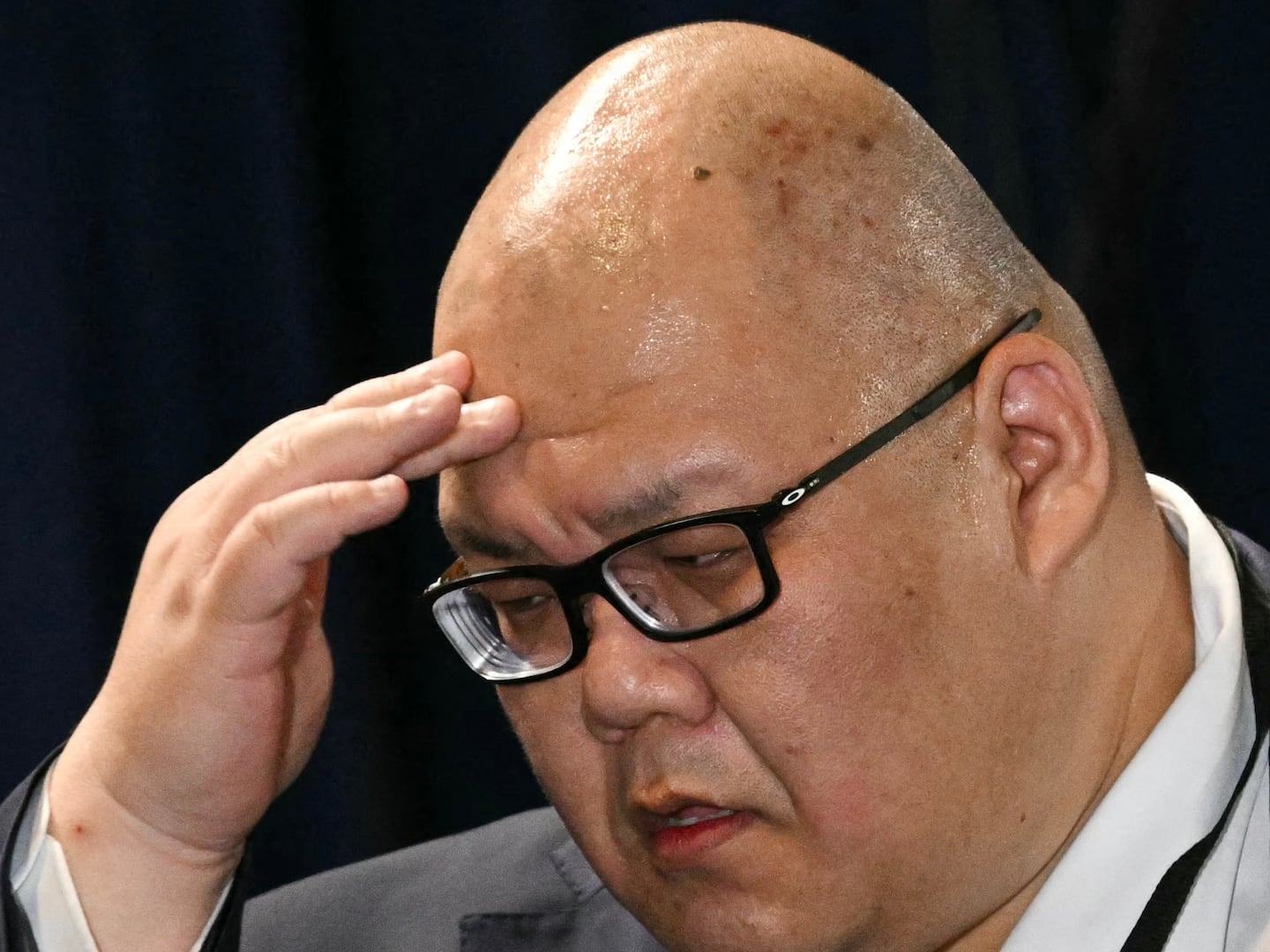TOKYO—Thanks to poor planning and perhaps a little latent xenophobia, the Japanese government has forced Airbnb to cancel thousands of fully booked and paid reservations. It’s the result of the Japanese government’s heavy-handed implementation of the minpaku (private lodging business) laws, which goes into effect on June 15.
At the moment, any reservation scheduled for guest arrival between June 15 and June 19 at a listing in Japan that does not currently have a license has been canceled. If you were planning to come to Japan and stay at an Airbnb, check the website. If the listing is still posted, you’re probably OK. But even then, you should contact the host and make sure they have obtained a government license, otherwise you may end up spending your time in Japan frantically looking for a place to stay at a reasonable price. Good luck with that.
Will this have a negative effect on tourism here? Keep this in mind: There were 24 million tourists visiting Japan from overseas in 2016. Airbnb reportedly provided lodging for 3.7 million of them. Do the math.
So, how did this fiasco happen?
First of all, we have to go back in time a bit. One basic reason the laws were created was the belief that foreigners staying in local neighborhoods, without proper monitoring would cause trouble, make noise, commit crimes, or fail to properly sort the garbage into burnables, non-burnables, recyclables, and dangerous materials. (It could be said that the failure to properly sort garbage and put it out on the correct day is the root of most neighborhood conflict in Japan.)
The government was also unhappy with house sharing as a business existing in a grey zone, and the hotel industry wasn’t happy with the competition either. Airbnb, not wanting to get kicked out of Japan, has been on board with the new rules. They had been in constant contact with the ministry in charge of implementing the laws. So, why did the sudden cancellations take place?
Here’s the sequence of events.
On June 1, Japan’s Tourism Agency sent out an official notice to Airbnb and other hosting agencies that any host without an official government license or a registration number showing they had applied for a license would have to cancel all reservations. Even if they were confirmed reservations.
Airbnb, in an attempt to be accommodating, as it were, requires that anyone who will continue hosting on its platform after June 15 must meet the government’s criteria.
However, the effect of the official notice (tsuuchi) was that on June 7, Airbnb announced that it had canceled thousands of reservations and delisted thousands of hosts. In addition, many hosts unable to navigate the paper trail to become official, or to obtain the layers of permission needed to qualify to rent rooms, have given up and delisted themselves.
According to Japan’s Nikkei newspaper, Airbnb had 62,000 listings in Japan earlier in the year, but the number now has dropped nearly 80 percent to 13,800.
Airbnb in a statement, said the government ultimatum came as a surprise: “It was contrary to the guidance our team had previously been given by the Japanese Tourism Agency (JTA) and put the travel experiences of thousands of visitors to Japan at risk. As soon as we learned about this reversal, we contacted senior members of the JTA to try to work together to ensure our guests did not have their plans interrupted. Much to our disappointment, after a number of discussions, including a meeting today [June 7], the JTA was unwilling to return to their original position or to make reasonable compromises to protect travelers visiting Japan.”
A spokesperson for the Japanese Tourism Agency told The Daily Beast the agency is well aware of the problems that the sudden wave of cancellations has caused. But Soichi Taguchi, of the Tourism Industry Section, explained that the laws were simply being enforced as planned. “We understand there’s an appeal to staying with a family or a residence, especially in rural areas, to get a better understanding and appreciation of life in Japan. We are hoping the new laws will result in a better experience for everyone. As the laws have yet to go into enforcement, we can’t assess how it will all work out.”
Taguchi explained that there were rumors spread widely that all reservations made before the new laws went into effect would be valid. The notice sent on June 1 was made to clarify that that wasn’t the case.
As for Airbnb’s assertion that there had been a different agreement on how to handle pre-existing reservations, he said, “We can’t comment in detail on each talk we have had with home-sharing agencies, but with some we have a difference of opinion.” The agency recognizes there may be a shortage of rooms due to the new laws in less-traveled areas of Japan. They are working with travel agencies to deal with any adverse consequences for tourists. They recommended visiting their minpaku portal website for more information.
Perhaps the incredible inconvenience and trouble could have been avoided if the Japanese government had embedded in the laws a period of grace, say for a year, in which operators would be allowed to continue hosting while completing the paperwork. Japan did as much when it finally passed laws forbidding possession of child pornography. When the laws went into place, those who possessed kiddie porn were given a year to get rid of their collections. Does the government of Japan love Japanese pedophiles more than foreign tourists? Who knows?
Airbnb officially announced in a statement, “While this is a difficult time for our hosts and guests, we believe the new rules will ultimately be a positive change for Airbnb and our Japan community. In recent years, the lack of clear rules for home sharing has made many people who used Airbnb as guests reluctant to take the next step and host. The law in Japan solves that problem, and that’s one of the many reasons why we supported the new rules.”
Well, here’s a newsflash for you Airbnb—that’s not the case at all.
The new laws in Japan create more problems than they solve, require incredible amounts of paperwork, bureaucratic procedures, permissions, and thus many people are even more “reluctant to take the next step and host.” Many people are giving up on hosting visiting foreigners or Japanese from other cities altogether.
One resident of a designer condominium explained how she and her husband had to give up on renting out their place. “We no longer list on Airbnb and are transitioning to a soon-to-launch monthly rental site. But who knows how much demand there will be for that? We may just need to get a long term tenant again. We can’t get the proper permits even if we wanted to because our building says it won’t authorize Airbnb—and building approval is a prerequisite. Our building is saying residents are wary of foreign guests! Well, then don’t live 10 minutes from Roppongi [an area full of foreigners]. If our building is still so conservative, there’s really no hope for the rest of Japan on this.”
Even if the building in which you have an apartment allows you to put it up on Airbnb, you can only rent it out 180 days of the year. Furthermore, if your residential ward or district bans weekday rentals, then you’re out of luck from the start. If you own a house, you could try and register it as a hotel.
The good news is that stranded travelers will get a coupon equivalent to their full Airbnb trip plus a $100 voucher for other Airbnb services. They can get assistance from Japan’s long-established travel agency, Japan Travel Bureau (JTB), to find alternative accommodations at traditional already established Japanese lodgings. Airbnb is offering 24/7 back-up support. For more information go to Airbnb’s Supporting Travelers in Japan webpage. The company deserves some mild applause for dealing with the situation as best it could.
However, it doesn’t change the fact that the sudden cancellations are a colossal pain in the ass. Juliette Doutreleau, a 27-year-old French food writer and Japanese language student had two reservations canceled—one by Airbnb and the other by a host who has given up on the platform. One host informed her before Airbnb that there would be a cancellation. The official letter from Airbnb explained:
<p>Due to recent changes to Japanese home sharing rules, your July 20, 2018 reservation was canceled. We know cancellations can be stressful, and we want to show you how much we value having you in our community… In addition to a full refund, here’s a coupon to use on a trip within the next year. You can use this €457.28 for any accommodation that you book on Airbnb.</p>
“I had a lovely trip planned on July 19 and while I appreciate the refund and the extra $100 voucher, finding another place to stay has been a real hassle,” Doutreleau said. “For the moment, I used booking.com to get a place, but it is a real shame that Japan has basically ruined the bnb experience for many hosts and the guests.”
In recent years, Japan has promoted heavily its friendliness to travelers and its hospitality with the buzzword “Omotenashi.” One wonders what will happen to that Omotenashi after June 15. Will that also be sold out, or just unavailable?
It does seem that while Japan promotes tourism heavily, the Abe administration is not fond of foreigners in general. Japan had over 20,000 applications for asylum from refugees last year; it accepted 20. Japan’s vocational trainee system to lure foreigners to the country has been severely criticized for human rights violations, although last year some laws were put in place to address the problem.
However, you would think that Japan would welcome foreigners with money—who won’t disrupt the harmony of the nation by actually staying here to live. Go figure. Perhaps the government thinks Airbnb dwellings attract low-grade foreigners. On the other hand, loud and abrasive foreigners dwelling among the longtime residents of Japan, does create disharmony. Probably. Especially on garbage day.
The cynical among us would point out that the biggest beneficiary of the clumsy implementation of these poorly thought-out minpaku laws are the established hotels, Japanese inns, and travel agencies in Japan. In fact, JTB (Japan Travel Bureau), which is now offering a series of services very similar to Airbnb, used to a be a part of the Japanese government—under the name Japan Tourist Bureau. The cozy relationship between JTB and the Japanese government has long been common knowledge. And now, thanks to the minpaku laws, it looks like JTB will stay in business for a long, long time. But that’s probably just a fortuitous coincidence.
If you’re without a place to stay and you still have the yen to come to Japan, as it were, my subversive suggestion is check Craigslist, or post a plea for help on Facebook. There are people here with an extra room to spare. You could also consider sleeping in an internet cafe or manga cafe, like the underclass of Japan who can’t find steady work. You can even store your bags in a locker during the day and crash at a capsule hotel when darkness falls. Love Hotels are also a good bet; if you check in after 10 p.m., you can stay for the whole night. And it would definitely be a Japanese experience you’d never forget, especially if you’re traveling with a partner and avail yourself of the rental costumes.
Or, you could try sleeping on the clean and safe streets of this island nation where there is little crime and everyone is, at least on the surface, polite and friendly.
Welcome to Japan!






